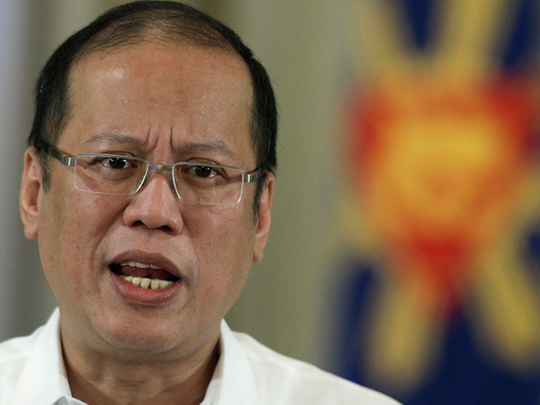
Manila: The Philippine government and rebels have agreed a peace deal for the country's troubled south, President Benigno Aquino announced on Sunday, signalling an end to a 40-year conflict that has killed more than 120,000 people and crippled the region's economy.
The long-awaited agreement sets in train a roadmap to create a new Bangsamoro autonomous region in Muslim-dominated areas of the south of the mainly Roman Catholic country before the end of Aquino's term in 2016. Bangsamoro refers to Muslim and non-Islamic minority people in the southern Philippines.
"This agreement creates a new political entity and it deserves a name that symbolises and honours the struggles of our forebears in Mindanao and celebrates the history and character of that part of our nation. That name will be Bangsamoro," Aquino announced via a live broadcast from the presidential palace.
"This framework agreement is about rising above our prejudices. It is about casting aside the distrust and myopia that has the plagued efforts of the past," said Aquino, surrounded by his cabinet ministers.
While obstacles still lie ahead, the deal signals a major breakthrough in trust between the government and the Moro Islamic Liberation Front (MILF) separatists, who have long viewed Manila's motives in the talks with suspicion.
The deal, reached during talks in the Malaysian capital Kuala Lumpur over the past week, will set up a 15-member Transition Commission, which has until 2015 to draft a law creating the new entity to replace the current autonomous region.
The new entity and its jurisdiction will be determined through a plebiscite after the passage of the organic law.
The Muslim area will gain more political and economic powers, including imposition of taxes to cut central government subsidies, a bigger share in revenues from natural resources and a more active role in internal security.
The deal comes as the Philippines defies its reputation as an economic laggard with strong growth and a resurgence in investor interest.
The south's volatile and often violent politics could still hamper the plans. There is a risk that radical Islamic factions could split off from the MILF and continue fighting in a region that has a history of links with Al Qaida militants. Another threat comes from powerful clans who control some areas in the region and may fear a loss of political influence.
After four decades of conflict and nearly 15 years of violence-interrupted talks, the MILF leaders are ageing and, analysts say, eager to see some fruit from the years of peace negotiations.
The leadership may also be motivated by the prospect of royalties from huge untapped deposits of oil, gas and mineral resources in rebel areas, part of an estimated total of $312 billion (Dh1.14 trillion) in mineral wealth in Mindanao. France's Total has partnered with Malaysia's Mitra Energy Ltd. to explore oil and gas fields in the Sulu Sea off Mindanao.











